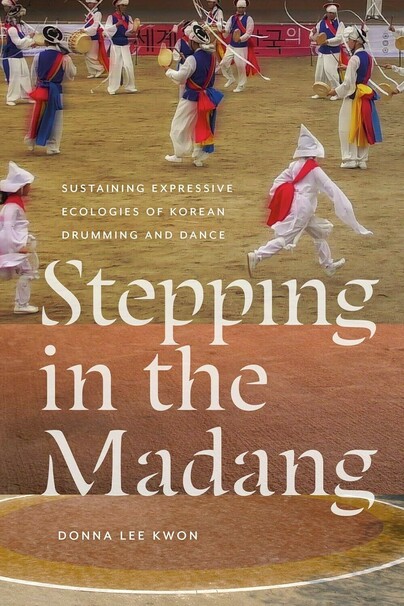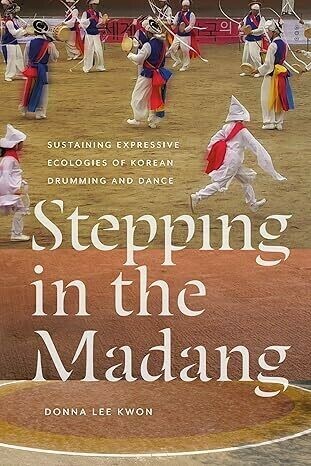

Pages: 288
ISBN: 9780819501400
Pub Date: November 2024
Imprint: Wesleyan University Press
Illustrations: 11 tables, 21 figures
Price:
£62.95
In stock
Pages: 288
ISBN: 9780819501417
Pub Date: January 2025
Imprint: Wesleyan University Press
Illustrations: 11 tables, 21 figures
Price:
£19.95
In stock
Description:
Site-specific expressive ecologies sustain Korean folk culture in a globalizing world/>/>The madang is a key space and concept for Korean drummers and dancers. Literally a village circle, the madang is also a metaphor for an expressive occasion or cultural space of embodied participation. Korean performers step in the madang as a means of bringing their bodies into purposeful contact with the particular time and place of performance. Kwon contends that the participatory way of being that is cultivated in the madang counteracts the fossilization of tradition by bringing folk practices more fully into the embodied present, even if in an idealized fashion. The madang draws attention to the body; it increases one's awareness of space and place; and it creates open-ended performances that are conducive to a more dynamic range of social interactions. The book starts with a study of a Korean p'ungmul group that maintains a vibrant, expressive ecology in rapidly globalizing Korea. Kwon documents how historical trends, transmission practices, communal labor, and performative ritual all support this expressive ecology. The book then examines how these practices inspire meaningful, site-focused expressions of folk culture in regional, national, and transnational spaces.
Site-specific expressive ecologies sustain Korean folk culture in a globalizing worldThe madang is a key space and concept for Korean drummers and dancers. Literally a village circle, the madang is also a metaphor for an expressive occasion or cultural space of embodied participation. Korean performers step in the madang as a means of bringing their bodies into purposeful contact with the particular time and place of performance. Kwon contends that the participatory way of being that is cultivated in the madang counteracts the fossilization of tradition by bringing folk practices more fully into the embodied present, even if in an idealized fashion. The madang draws attention to the body; it increases one's awareness of space and place; and it creates open-ended performances that are conducive to a more dynamic range of social interactions. The book starts with a study of a Korean p'ungmul group that maintains a vibrant, expressive ecology in rapidly globalizing Korea. Kwon documents how historical trends, transmission practices, communal labor, and performative ritual all support this expressive ecology. The book then examines how these practices inspire meaningful, site-focused expressions of folk culture in regional, national, and transnational spaces.

